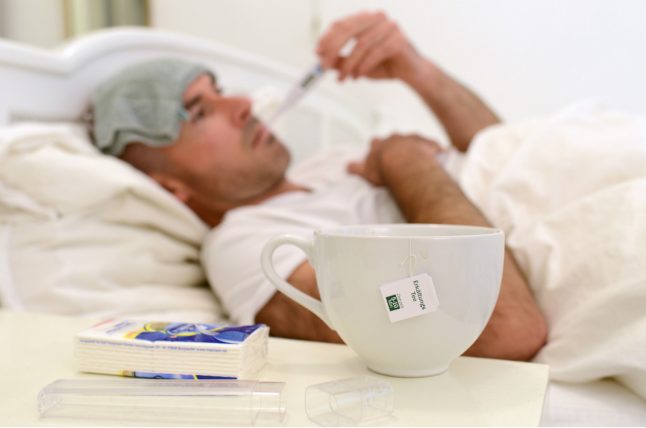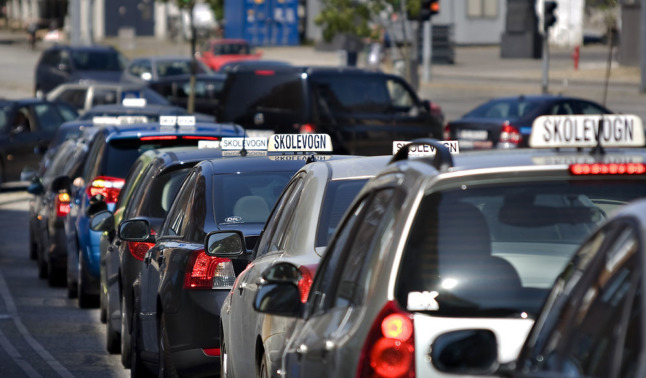To put it most Britishly, my colleague has been “through the wars” recently.
After an unfortunate scooter incident, she’s due urgent knee surgery, with an estimated six to eight week recovery period. Given her recent promotion in an understaffed department, her predicament is not good news for our company.
Naturally, she fretted over taking such a long time away from work. I empathised. I wouldn’t feel so great about needing to take so much time off, either.
But what we didn’t feel the need to mutually fret about was how our bosses would take the news. We knew they would understand. Their reactions to such a lengthy, untimely absence didn’t even warrant a conversation.
Truly, one of the most pleasant culture shocks since arriving in Germany was this empathetic approach to sickness in the workplace. Not only are employees encouraged to go home if they are unwell, but they are actually given sufficient time to recover if necessary. Under Germany’s healthcare system, employee’s salary will continue to be paid in full for up to six weeks (Entgeltfortzahlung), and after that, 70% of their salary (Krankengeld). This means that in the already stressful situation of prolonged sickness, money woes won’t enter the equation.
As previously chronicled in this column, my new doctor in Berlin handed me a two week sick note unsettlingly early into my probation period. At such a crucial stage in my new venture, I wasn’t sure what was really making me feel worse: the illness itself, or the crippling guilt and fear that my bosses would be mentally harbouring reservations, concerned that their new hire was a slacking hypochondriac.
Given that my illness was depression, it made for an unsettling period of self-doubt – would they understand that I was genuinely incapacitated?
When I broke the news to my boss, I couldn’t believe what I was hearing: only to come back when I was absolutely better. She was genuinely kind, reassuring, and sympathetic, making it clear that her concern rested genuinely with my wellbeing, and not my ability to rush back to work as soon as possible.
“I want you working at 100% and nothing less!” she said.
To this day, I still believe her compassionate approach was one of the key factors which aided my recovery.
This set a startling contrast to what I’d experienced working on home soil. For example, like many students, I balanced academia with part-time work in retail. Some weekends, I would take to the tills while snivelling, shaking and coughing, too fearful that my boss might think I was just another hungover student to dream of phoning in sick.
I had watched the adult role models around me adopt the same typically British, “stiff upper lip” attitude throughout my life, too. Taking a sick day was reserved only for illnesses which were legitimised by a doctor’s note. You either manned up, or maybe you just weren’t that determined a worker.
My refreshing experience isn’t unique to the young, progressive company I currently work for. Many friends and colleagues have shared similar stories of being sent home at the hint of the sniffle, or received tactful messages suggesting afternoons be taken off after spending just a bit too long in the office toilet.
One British friend recently shared how her boss reacted when she began to show signs of burnout, following a stressful period at work and at home.
“It was obvious I wasn’t doing well. I didn’t feel good about mentioning that I was losing sleep and couldn’t concentrate” she mentioned.
“But he told me to take holiday if that’s what I needed – even if it had to be last minute. He encouraged me to fly back to the UK to be with my family, but also to seek medical advice if concentration was really becoming an issue, just in case it might be anything more serious”
Understanding and aware of the repercussions of stress on the mental health? Memories of being coaxed into work with flu suddenly seemed far away for both of us. It also turns out that burnout is taken seriously by doctors in Germany, which challenges the more British notion of sickness only counting if you’re entirely bedridden.
Whether this attitude is motivated by genuine humility or just hyper-awareness of germs, the stark contrast in approaches to sickness in the workplace was an unexpected but pleasant surprise after moving. It subverts one of the greatest myths in British working life: that coming to work sick is the virtue of a grafter. Seriously – with one of the largest, most robust economies in the world, Germany clearly suffers no great ills for allowing its workers adequate time to recover from sickness.



 Please whitelist us to continue reading.
Please whitelist us to continue reading.
Interesting comparisons Floraidh. Thanks for sharing!
Wow, having worked in industry and academia in America my whole career (I have 2 doctorates but am retired now), my experience was exactly the opposite. I was a salaried employee (ie, not paid hourly) and expected to work practically ALL the time–nights, weekends, holidays, even when I was on vacation! My various bosses required me to be back to work very soon even after major surgeries. This kind of pressure is not unusual in the USA, especially in professions. It is disastrous for relationships and health. “The American Way.”
This is what happens when the government destroys unions. Even people in jobs and professions without unions benefit when workers’ unions are strong. Nationalism, which is driven by extreme capitalism, will push Europe in this direction also. I hope Europeans keep that in mind. Disrespect of human rights never stops with the obvious targets of hatred.